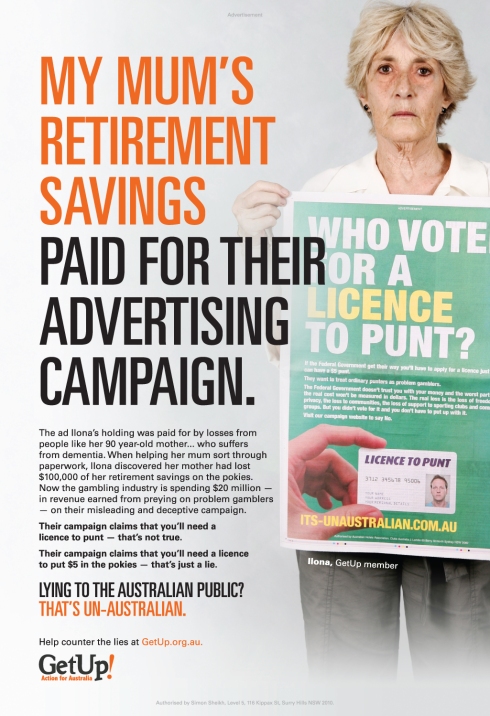38 degrees has done it and now Get Up has apparently done it. The online campaigning by 38 Degrees has led to the Tory led Coalition in the UK overturning its decision to sell off hundreds of thousands of acres of public owned forest. Lots has already been written about the campaign and you can see a good overview here at Tom Baker’s blog.
But here in Australia, Get Up has had a similar win, or so it claims. The ALP Government has been lobbying the independents to pass its Flood Levy, however the Government’s other cuts, including cuts to education and green energy programmes have been sticking points. Obviously, these were always designed to be negotiation points, but after reinstating a number of the programmes in response to independent and Green demands, the Levy Bill passed the lower house and will probably get though the Senate. Get Up has taken a lot of credit for this, they got enough donations for a full-page ad in one of our leading papers, as well gaining 31,000 signatures in a week. That is all very impressive granted. However, when I say they are taking a lot of credit, I mean they are taking a lot of credit. No doubt a significant amount is internal PR, but I don’t they can take the credit that the 38 Degrees can take for getting the forestry bill overturned.
Get Up was praised by Greens Senate Leader Bob Brown and the Independents for their tireless work, although, this was at a Get Up press conference.
However, my point isn’t that Get Up isn’t a hard-working, succesful and worthy organisation, I just think 38 Degrees has pulled off something far more significant as a result of their actions. There were marches in the streets and petitions of over 500,000 people. At the same time though, even 38 Degrees’ success isn’t all thanks to them. They also have an increasingly popular opposition on their side. and I think it was an issue the Tories were willing to hand over so they could convince the public that they were reasonable people.
Also, there is still the NHS fight to be fought. That result will truly show the strength of the progressive grassroots campaigners.
Tags: 38 degrees, flood levy, forestry bill, get up




Links of the Day – all about Bin Laden
2 MayThese are links to the most interesting reports about Bin Laden’s death.
Tags: bin laden